This report presents Year One (2010-11) school level achievement and attendance outcomes and case study findings from fall 2011 that focused on school leadership and instruction.Thirteen schools were included in the first year of Philadelphia’s Renaissance Schools Initiative(2010-11). The analyses provide the most rigorous evaluation available regarding the impact of the reform model.First-year results are positive. However, because the outcomes analyses were conducted using data from only the first year of the Initiative, it is too early to determine whether the preliminary results summarized here will be sustained over time.Findings:In the 11 K-8 schools, the school-level effect sizes associated with participation in the Renaissance SchoolsInitiative for both student achievement and attendance ranged from 1.0 to 2.25, which are substantially greater than is typically seen in educational research.Descriptive analysis of student achievement and attendance reveal no observable changes at Renaissance High Schools in Year One of the Renaissance Schools Initiative, while the Comparison High Schools have continued to improve slightly over the six-year study period.There was no statistically significant difference in either student achievement or attendance between the K-8 Promise Academies and the Charter-managed Renaissance Schools. Both sets of schools significantly out-performed the Comparison Schools in terms of increases in student achievement and attendance.This report also highlights promising District policies and school practices that could impact future turnaround efforts in Philadelphia or in other locales. These include the following:1) The Promise Academies received extra resources and attention from the District, which placed them in the spotlight and generated greater public interest in their progress.2) The teachers’ union supported the Renaissance Schools Initiative by signing a collective bargaining agreement that was consistent with the principles of the reform effort.3) Principals and teachers felt part of ‘something big.’4) Principals built their own teams of teachers through site selection.5) Principals built systems that promoted and reinforced teacher learning and growth.6) Data and student work were used to assess learning and make instructional decisions.7) Principals and teachers exercised professional judgment to adapt the curriculum, within the parameters of the Promise Academy Way.During 2011, along with the departure of CEO Arlene Ackerman and extreme budget cuts, Renaissance Schools, particularly the District-run Promise Academies, were challenged by: 1) A late hiring window, with little time for orientation. 2) Significant staff and programmatic reductions as a result of District cut-backs. 3) High levels of teacher turnover. 4) Over-use of corrective reading and math programs intended to increase student achievement. 5) Over-reliance on direct instruction, particularly around prescribed curricula.
Philadelphia’s Renaissance Schools Initiative: 18 Month Interim Report
Eva Gold , Michael A. Norton , Deborah Good , Stephanie Levin
Date: February 2012
Related Publications
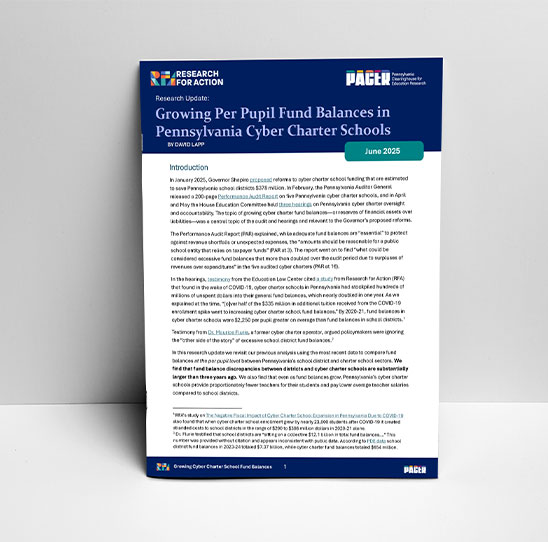
Publication
Growing Per Pupil Fund Balances in Pennsylvania Cyber Charter Schools
David Lapp
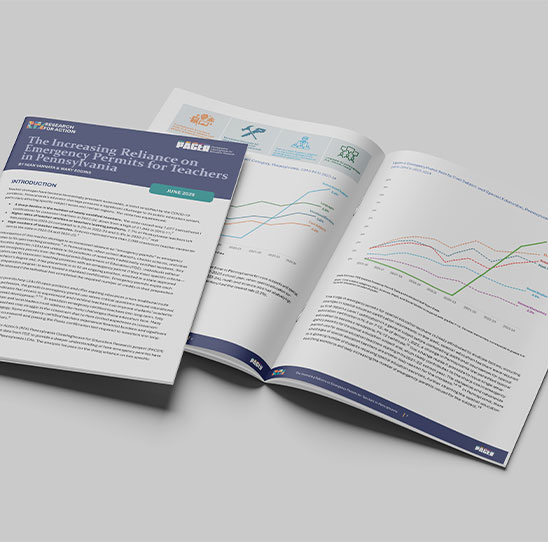
Publication
The Increasing Reliance on Emergency Permits for Teachers in Pennsylvania
Sean Vannata, Mary Eddins
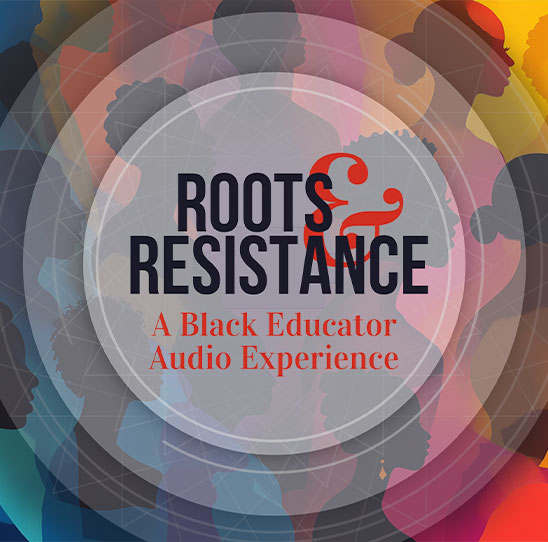
Publication
Small But Mighty – An Audio Documentary
Siettah Parks, Kevin Burgess, Alita Robinson, Mary Eddins
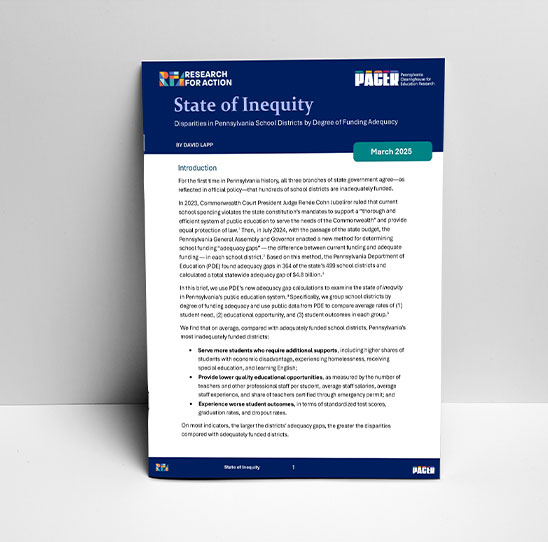
Publication
State of Inequity: Disparities in Pennsylvania School Districts by Degree of Funding Adequacy
David Lapp

Publication
Patterns of Student Mobility Among English Learner Students in Public High Schools in Philadelphia
Lindsey Liu, Sean Vannata
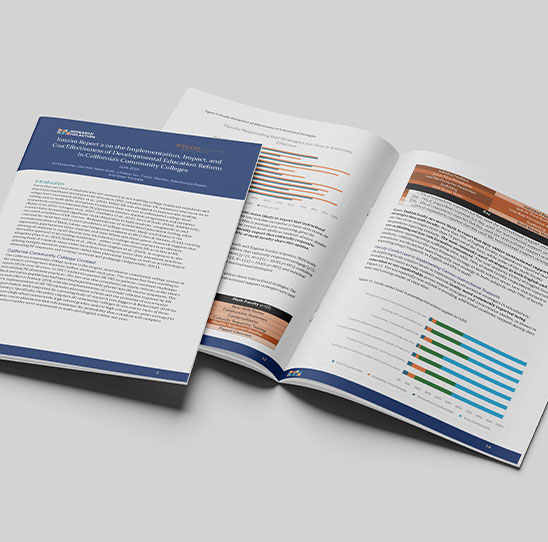
Publication
Interim Report 2 on the Implementation, Impact, and Cost Effectiveness of Developmental Education Reform in California’s Community Colleges
Kri Burkander, Dae Y. Kim, Mark Duffy, Lindsey Liu, Taylor Stenley, Keerthanya Rajesh, Sean Vannata
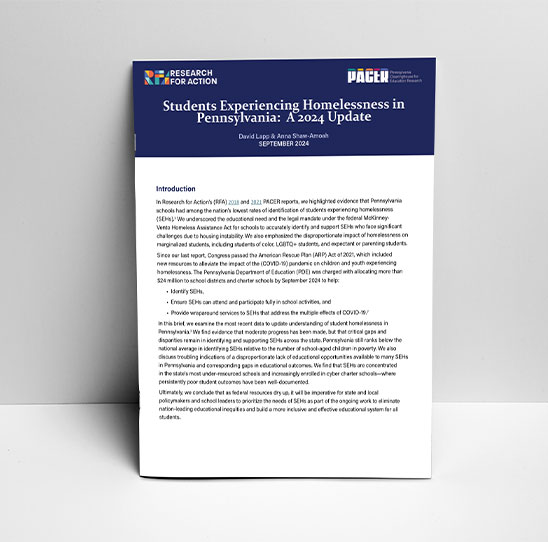
Publication
Students Experiencing Homelessness in Pennsylvania: A 2024 Update
David Lapp, Anna Shaw-Amoah

Publication
The When and How of Keystone Exams in the School District of Philadelphia
Molly Pileggi, Sean Vannata, Alyn Turner
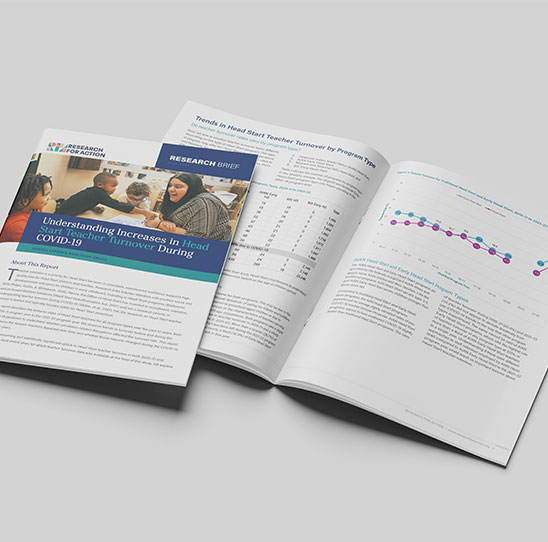
Publication
Understanding Increases in Head Start Teacher Turnover During COVID-19
Kendall LaParo, Anna Shaw-Amoah
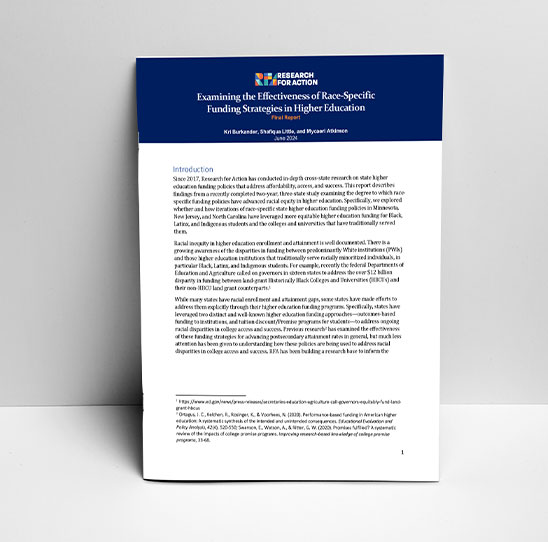
Publication
Examining the Effectiveness of Race-Specific Funding Strategies in Higher Education
Kri Burkander, Shafiqua Little, Mycaeri Atkinson
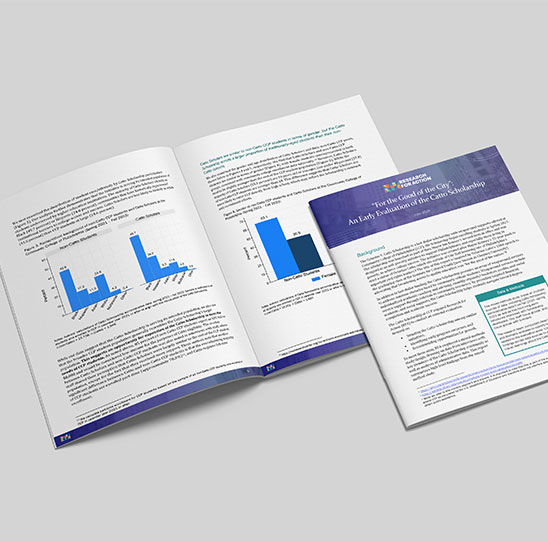
Publication
“For the Good of the City” An Early Evaluation of the Catto Scholarship
Kri Burkander, Karin Gegenheimer, Alita Robinson
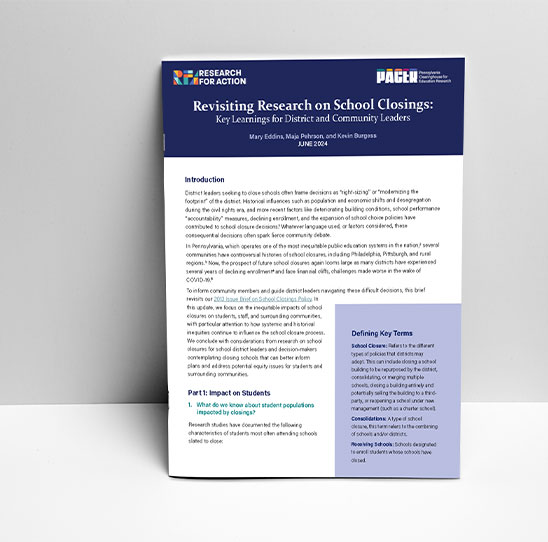
Publication
Revisiting Research on School Closings: Key Learnings for District and Community Leaders
Mary Eddins, Maja Pehrson, Kevin Burgess